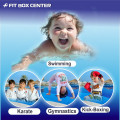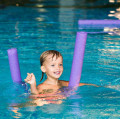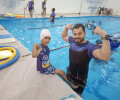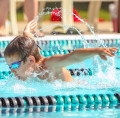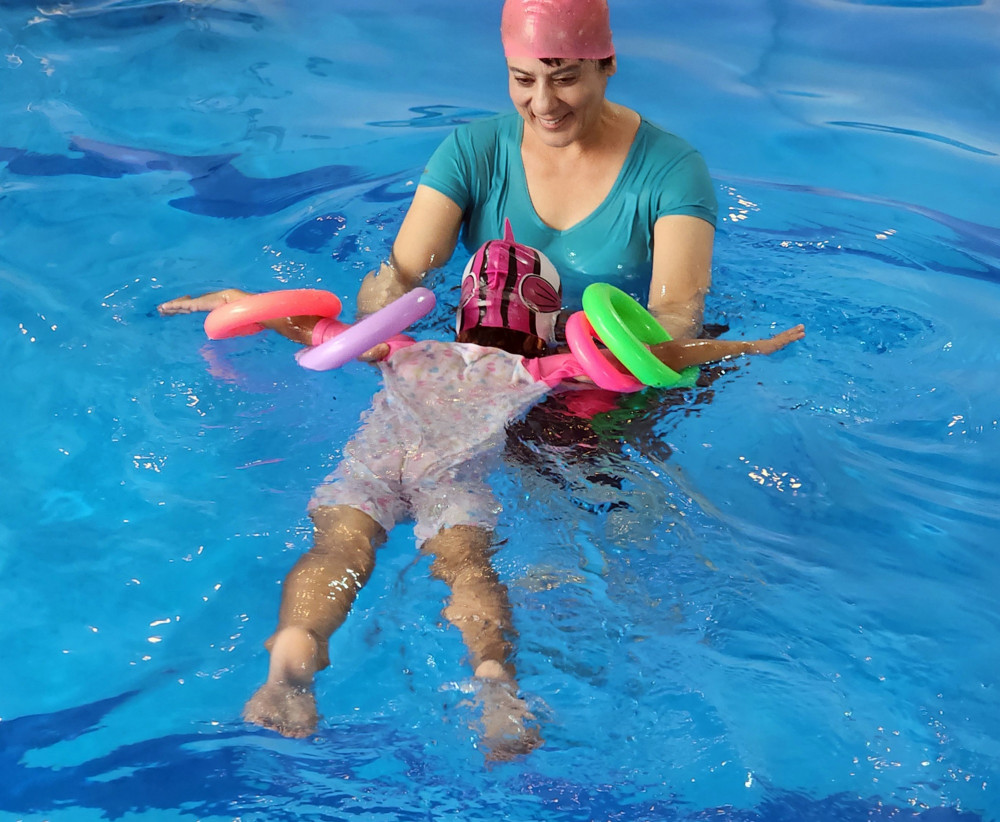
Starting Swimming Building Confidence and Familiarity with Water
2024-04-17 - swimmingSwimming is not just a recreational activity; it's a crucial
life skill that every child should learn. Introducing your child to swimming at
an early age not only helps them become familiar with water but also lays the
foundation for a lifetime of water safety and enjoyment. In this article, we'll
explore the importance of starting swimming early, the benefits it offers, how
to prepare your child for swimming, tips for making it enjoyable, overcoming
fear of water, common mistakes to avoid, and address some FAQs parents often
have.
1. Introduction: The Importance of Starting Swimming
Early
Introducing your child to swimming at a young age is vital
for several reasons. Not only does it help them become comfortable and
confident in the water, but it also provides numerous physical and cognitive
benefits.
2. Benefits of Early Swimming
Physical Development
Swimming engages almost every muscle in the body, promoting
strength, coordination, and flexibility. Starting swimming early can contribute
to better motor skills and overall physical development.
Water Safety Skills
Learning to swim early equips children with essential water
safety skills, reducing the risk of drowning accidents. These skills include
floating, treading water, and basic rescue techniques.
Cognitive Development
Swimming also stimulates cognitive development, as children
learn to coordinate their movements and navigate the water environment. It can
enhance their problem-solving abilities and spatial awareness.
3. Preparing Your Child for Swimming
Before starting swimming lessons, it's essential to prepare
your child both mentally and physically. Choosing the right swim program and
ensuring they have the necessary gear and equipment are crucial steps in this
process.
Choosing the Right Swim Program
Look for swim programs specifically designed for young
children, with instructors who are experienced in working with kids. The
program should focus on building water confidence and safety skills in a
supportive environment.
Gear and Equipment
Invest in appropriate swim gear for your child, including
swimsuits, goggles, swim caps (if needed),and flotation devices if they're
just starting out. Ensure that the gear fits comfortably and provides adequate
protection.
4. Tips for Making Swimming Fun and Engaging
Making swimming enjoyable for your child is key to keeping
them motivated and eager to learn. Incorporating games, activities, and
positive reinforcement can make the experience more enjoyable for both you and
your child.
Incorporating Games and Activities
Introduce games like "Simon Says" or
"Treasure Hunt" to make swimming lessons more interactive and fun.
These games not only entertain but also help children practice essential
swimming skills in a playful manner.
Positive Reinforcement
Praise and encouragement are powerful motivators for
children. Celebrate their progress, no matter how small, and offer plenty of
encouragement to boost their confidence in the water.
Swim with Them
Joining your child in the water can provide them with a sense
of security and make them feel more comfortable. Swim alongside them during
lessons and practice sessions to offer support and encouragement.
5. Overcoming Fear of Water
It's not uncommon for children to feel anxious or fearful
about swimming, especially if they're new to the water. However, with patience
and gradual exposure, most children can overcome their fear and develop
confidence in swimming.
Gradual Exposure
Start by introducing your child to water in a gentle and
gradual manner. Begin with shallow water where they can touch the bottom and
gradually progress to deeper water as they become more comfortable.
Building Confidence
Focus on building your child's confidence through positive
reinforcement and praise. Avoid pushing them too hard or forcing them into
situations where they feel overwhelmed. Instead, encourage them to take small
steps and celebrate their achievements along the way.
6. Common Mistakes to Avoid
While teaching your child to swim, it's essential to be
mindful of certain common mistakes that can hinder their progress or even put
them at risk.
Pushing Too Hard
Pushing your child too hard or expecting too much from them
can backfire and make them feel discouraged or fearful. It's essential to
respect their pace and comfort level throughout the learning process.
Ignoring Fear Signals
Pay attention to your child's body language and verbal cues
during swimming lessons. If they express fear or discomfort, take a step back
and reassess the situation. Ignoring their fear signals can undermine their
trust and confidence in the water.
Neglecting Safety Precautions
Never compromise on safety when it comes to swimming. Always
supervise your child closely around water, even if they're confident swimmers.
Ensure that they wear appropriate flotation devices and adhere to pool safety
rules at all times.
7. Conclusion Setting the Foundation for a Lifelong Love
of Swimming
Starting swimming early can have profound benefits for
children, both physically and emotionally. By introducing them to swimming in a
positive and supportive environment, you can help them develop essential water
safety skills, build confidence, and cultivate a lifelong love of swimming.


